Laughter in the classroom and building trust are keys to learning for this professor
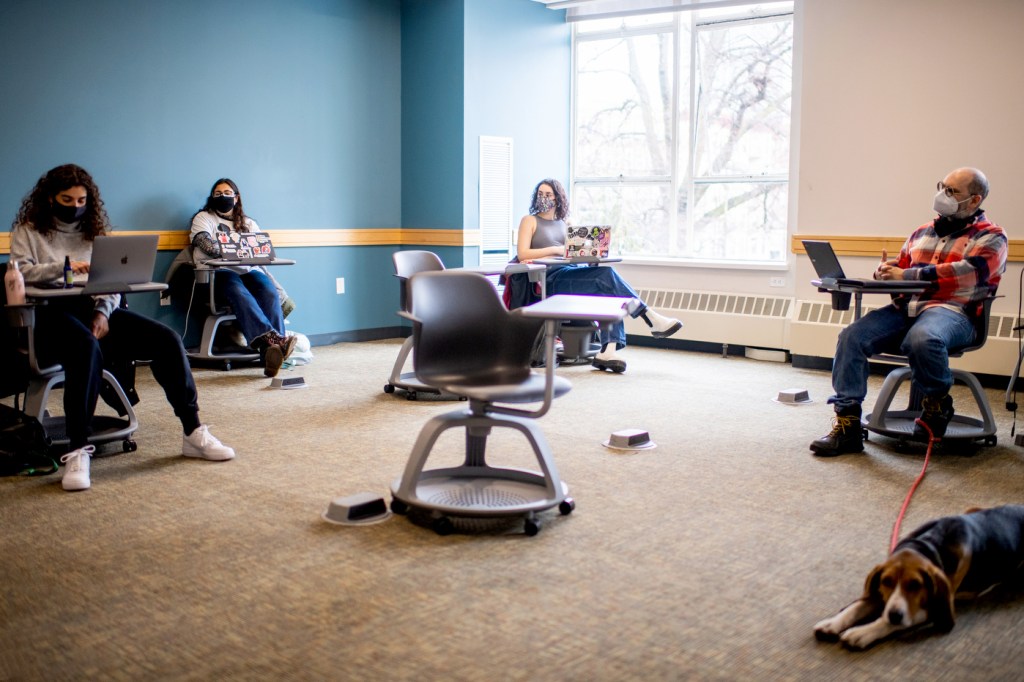
Students in Greg Goodale’s advocacy writing class are in the middle of a passionate discussion about the ways men and women communicate – dissecting the differences in tone of voice, word use, and body language.
And they have thoughts.
“To the point about women not having to perform to other women, I disagree. Every single interaction you have with someone is a performance,” says Maeve Martin, one of many active participants in the communication professor’s class.
Goodale quickly follows up.
“Who is harder to perform for?” he asks.
“Women,” Martin says without hesitation. “Men are simple.”
The class bursts into laughter, easing the tension. The topic of gender communication and societal gender perceptions can be highly charged, but students say Goodale’s warm approach and focus on classroom interactions has created a safe space for open dialogue.
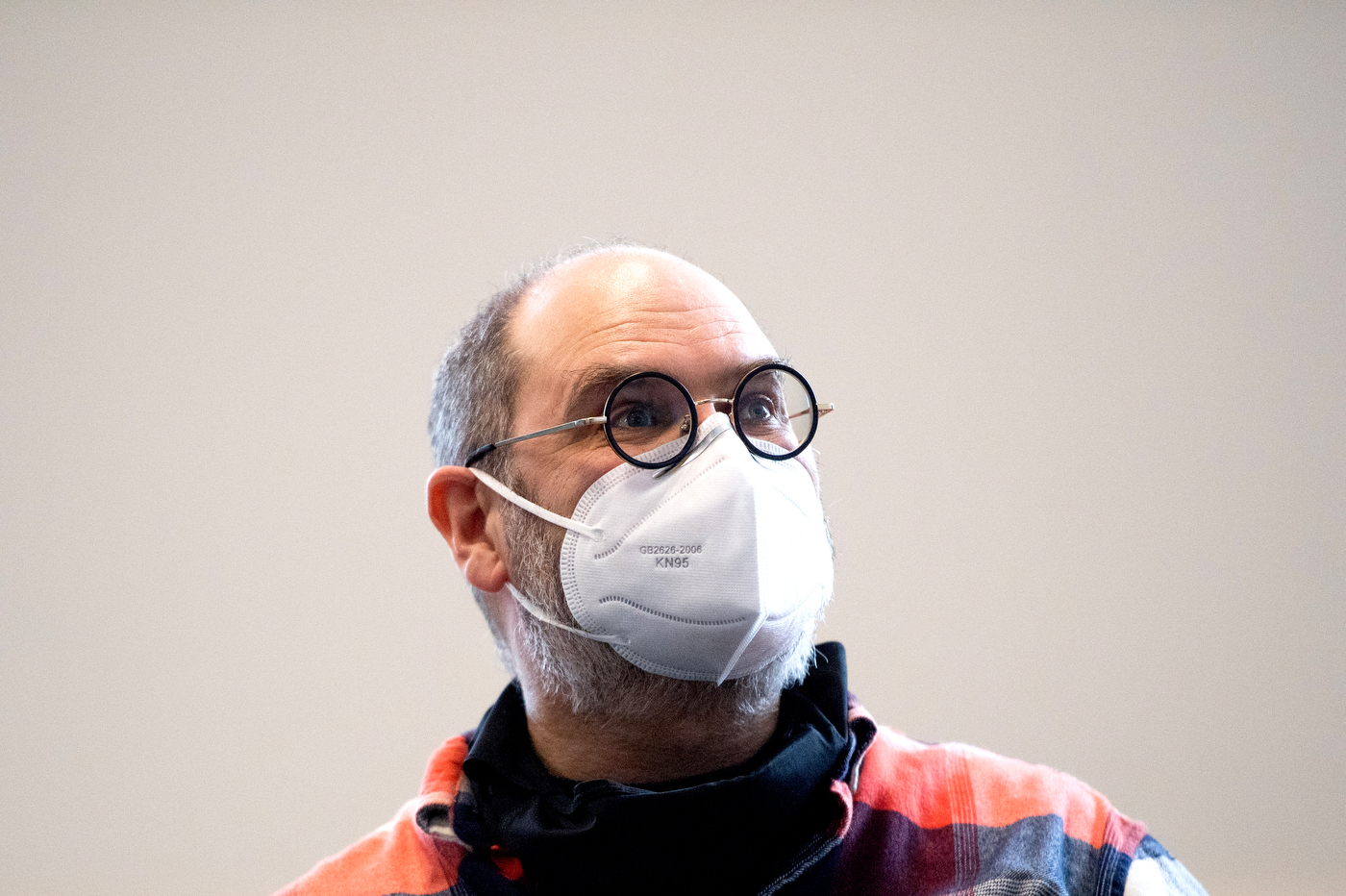
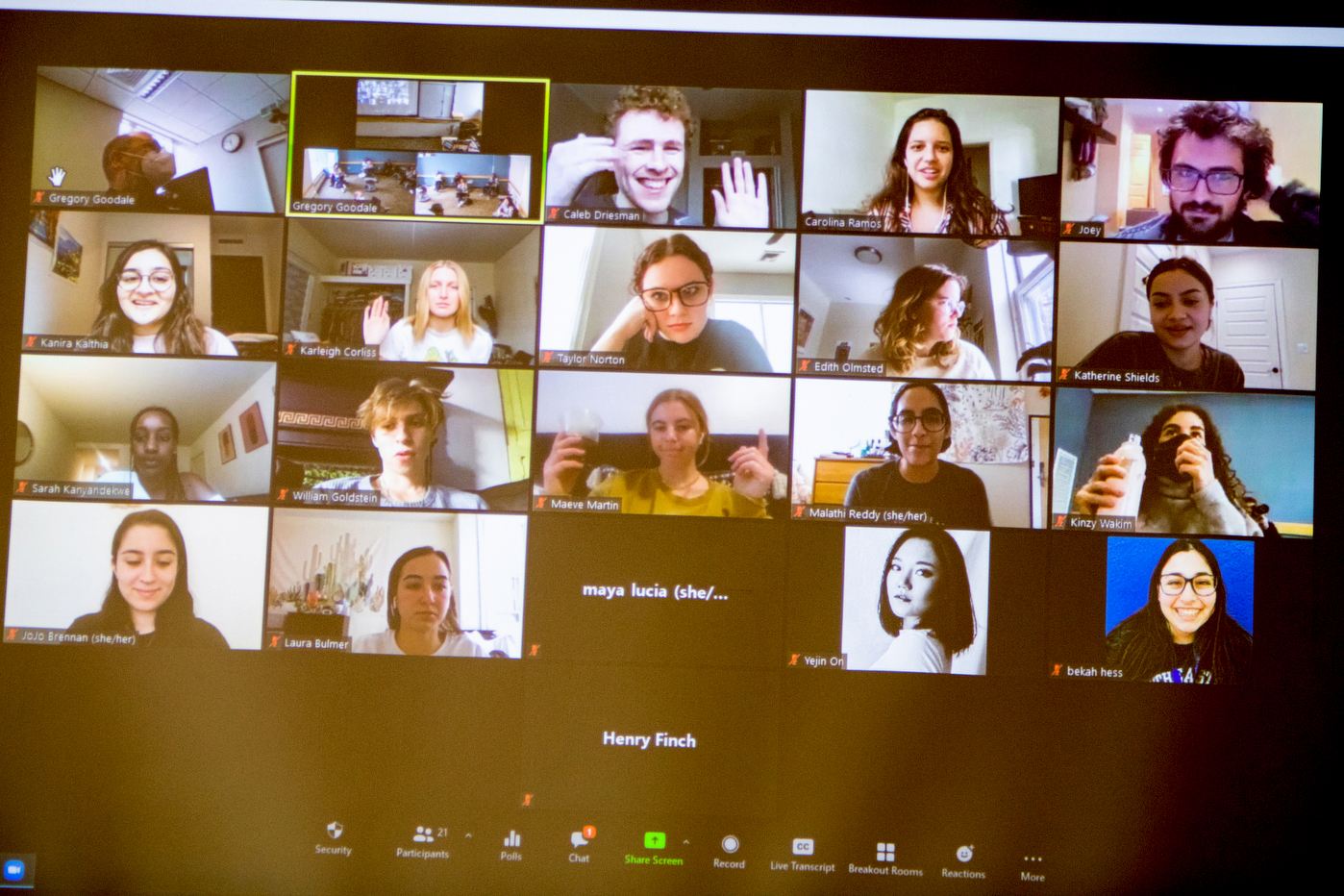
“He’s the only professor where people listen to everyone in the class and there’s no judging,” says Kinzy Wakim, a fourth-year combined business and communication studies major who physically attends Goodale’s class every Thursday.
“He is able, I don’t know how, to build relationships with every single one of his students,” she says.
Although more than half of Goodale’s students are learning remotely during the spring semester, he is thrilled about Northeastern’s return to in-person classes on the Boston campus. The contact is vital, he says, because student engagement and collaboration are non-negotiable requirements in his class.
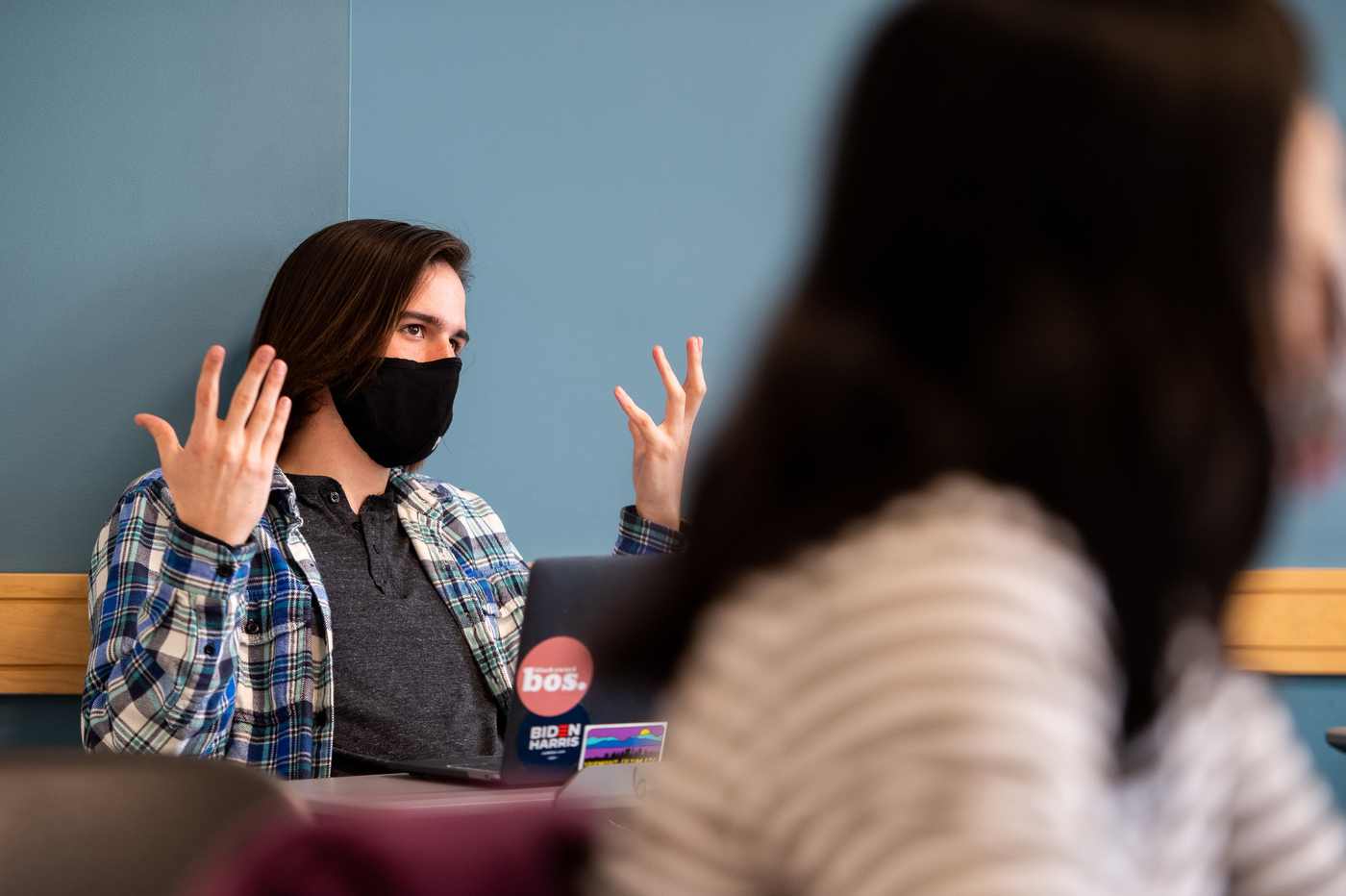
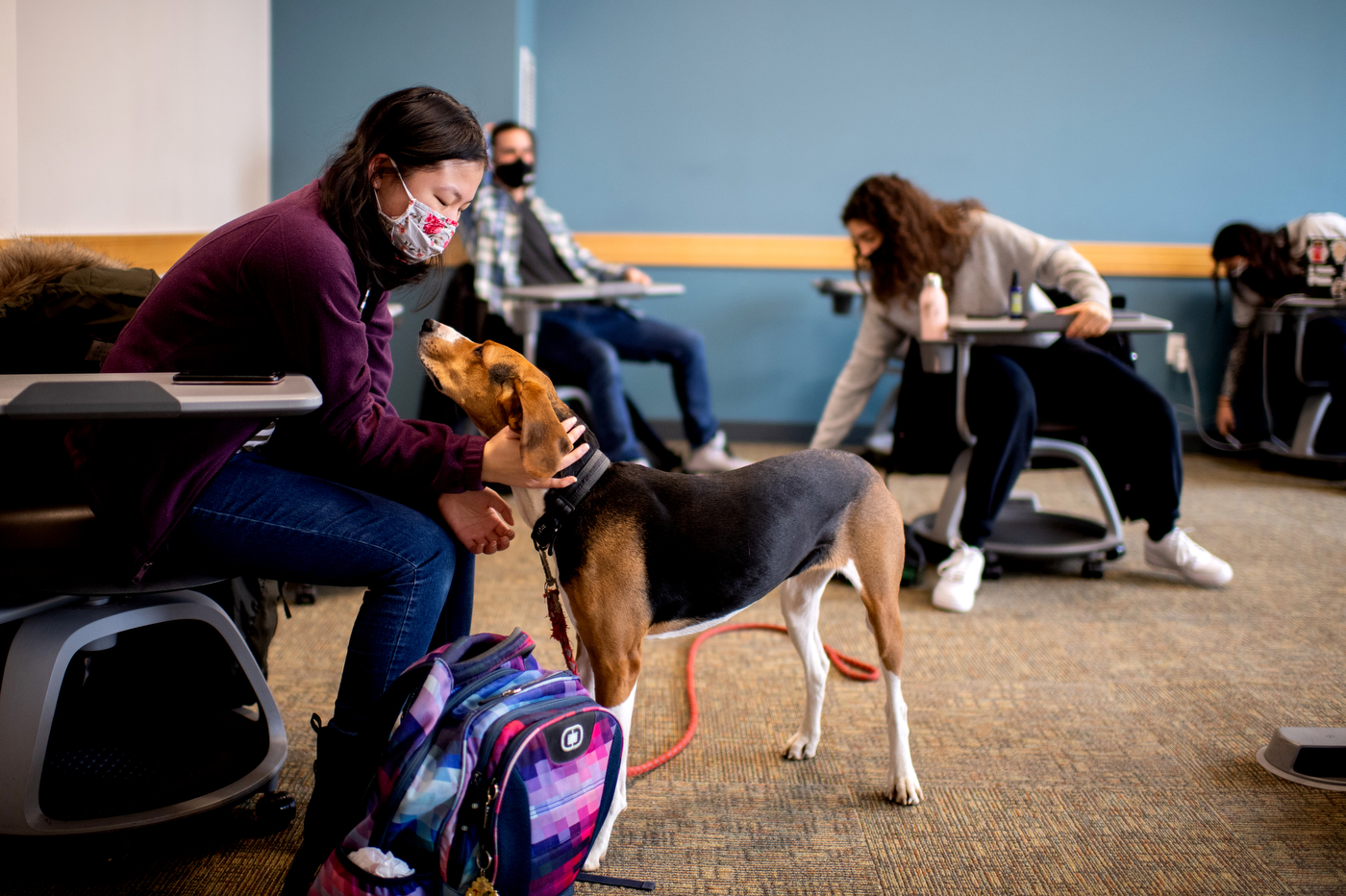
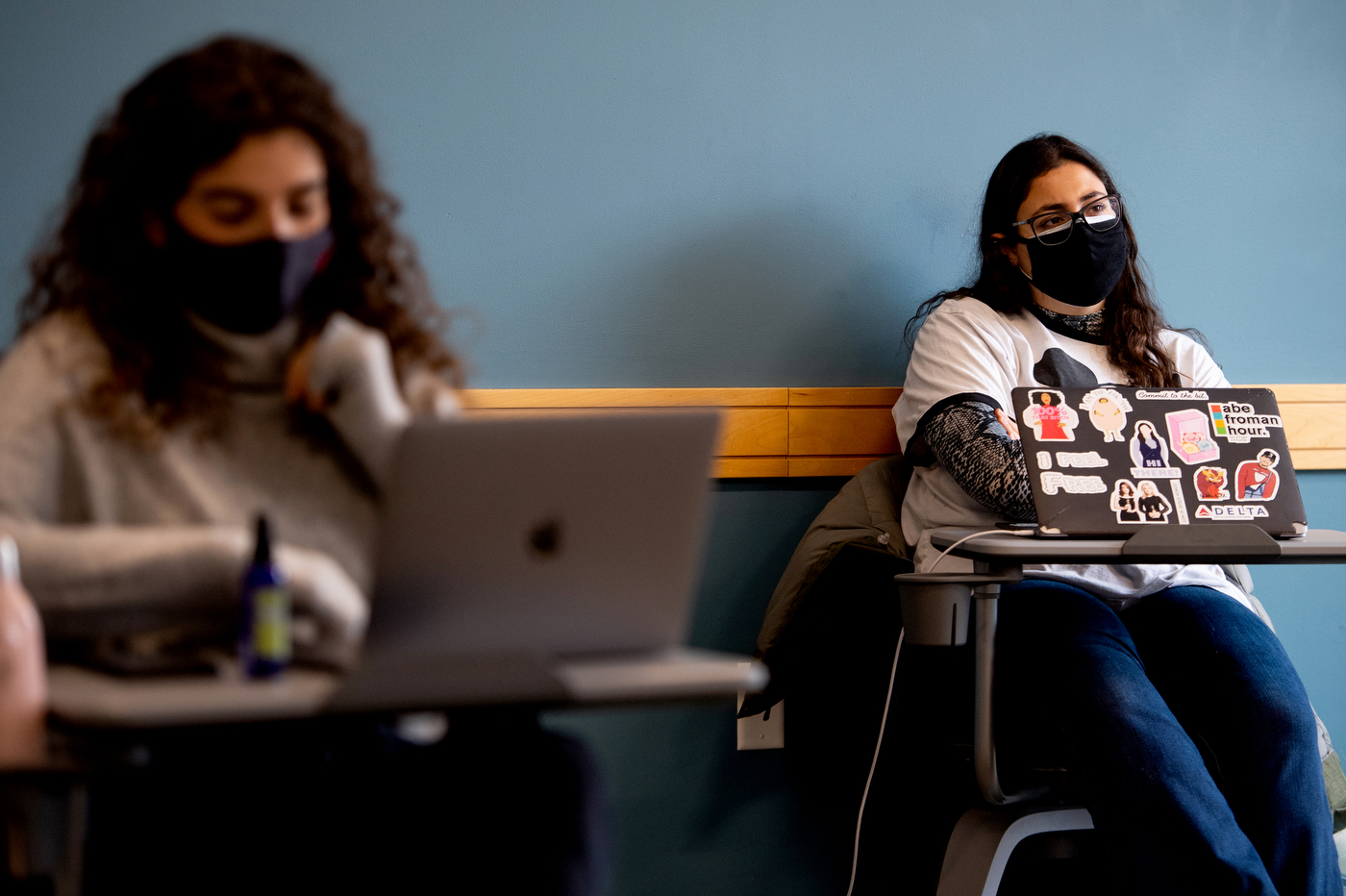
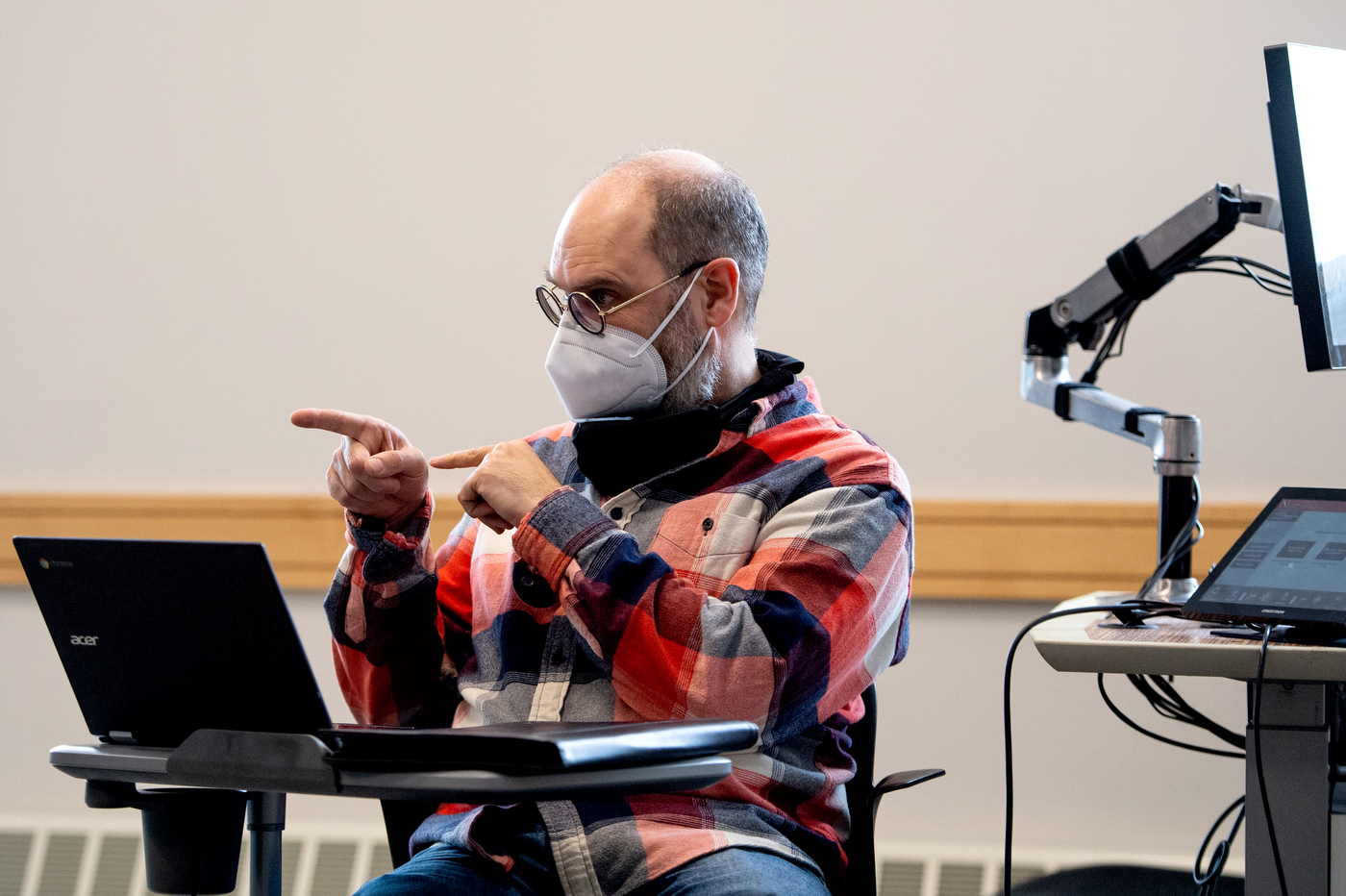
“The students are always going to learn more from each other than they would from just me,” says Goodale, who makes sure he can recognize his students’ names and faces before he even steps inside the classroom.
“It’s a really tiny thing, but it’s really affirming,” says Goodale. Students are asked to put effort into learning each others’ names, and he requires those attending remotely to keep their cameras on so they can maintain that classroom connection.
“You feel like you’re a part of something,” says Wakim of her decision to attend lessons in person. “When you’re home it’s a completely different experience, it’s not fun at all.”
Somehow, Goodale has managed to maintain these student connections despite the pandemic, which has meant remote learning and increased isolation for many in the Northeastern community.
“When we transitioned to remote learning, adapting my lesson plan kept me up at night,” said Goodale. “I was really worried that I wouldn’t be able to breed into my students that collaboration is really important.”
Malathi Reddy, Goodale’s teaching assistant who’s working on her combined communication psychology and social activism degree, said he needn’t have worried.
“It’s that level of trust that makes the class much more impactful,” says Reddy. “Everyone gains a lot more because of the community that we’ve built.”
For media inquiries, please contact media@northeastern.edu.